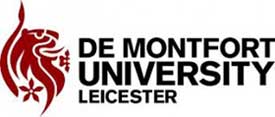About Criminal Investigation And Policing Studies BA (hons) in De Montfort University
Our Criminal Investigation and Policing Studies course can teach you the skills to become a professional practitioner in the public or private policing sector.
This programme is the ideal choice if you’re interested in studying policing or criminal investigation but do not necessarily wish to pursue a career in the police service. This provides opportunities for you to pursue a career as an investigator or intelligence officer in other law enforcement agencies.
Taught by policing and criminology academics with substantial experience of criminal justice practice, in the first year you will get an introduction to criminology and the profession of policing, as well as learn how to research in the crime and justice sector and gain an understanding of the criminal justice system. In years two and three, you will study topics covering the leadership and management of contemporary issues in policing, research for effective practice and multi-agency working, as well as complete a dissertation on a subject of your own choice. Both years will have a bespoke progressive investigation taught module, which is designed to develop your critical understanding of operational and critical incident investigations within public and private law enforcement agencies and within the Criminal Justice System.
Key features
- 100% of our Criminal Investigation and Policing Studies graduates from summer 2017 are in work or further study after graduating, according to the latest Destinations of Leavers from Higher Education report (2016-17). This is above the sector average of 94.6%.
- This programme is taught by experienced practice-based policing and criminology academics and researchers, who will help broaden your understanding of the sector while keeping you up to date with contemporary issues and debates.
- You will study a range of modules including Introduction to Criminology, TheProfession of Policing, Leadership and Management of Contemporary Issues inPolicing, and Multi-Agency Working.
- Take advantage of placement opportunities with a local investigatory agency offered through our DMU Works careers programme, which will help enhance your employability through offering real-world experience alongside your studies.
- Previous graduates have landed roles at local authority Trading Standards, the Leicestershire Police investigations teams and the Independent Police Complaints Authority.
- Gain international experience and apply your knowledge to a global context through our DMU Global programme. Previously, our Criminal investigation and Policing students have had the opportunity to visit destinations such as New York, where they were taught about the differences and similarities between the policing system in the US and the U
Entry criteria
GCSEs
- Five GCSEs at grade C/4 or above including English Language or English Literature
Plus one of the following:
A levels
- A minimum of 112 points for the BA (Hons) from at least two A levels
BTEC
- BTEC National Diploma - Distinction/Merit/Merit
- BTEC Extended Diploma - Distinction/Merit/Merit
International Baccalaureate
English language requirements:
If English is not your first language an IELTS score of 6.5 or equivalent when you start the course is essential. English language tuition, delivered by our British Council accredited Centre for English Language Learning (CELL), is available both before and during the course.
De Montfort University Highlights
| Type of Institution |
Public |
| Campus Setting |
Urban |
| Endowment |
£1.17 million |
| Number of Campuses |
4 faculties |
| Number/Percentage of International Students |
23205 |
| Total number of Professors |
3240 |
| Student Satisfaction Rate |
86% |
| Graduate Job Rate |
97.3% |
| Number of Residence Vacancy |
Around 3000 |
| International fee |
Undergraduates- £13240 (annual) Postgraduates- £15950 (annual) |
| Number of Academic Programs |
UG, PG, Part time, distance, blended |
| Mode of Program |
Full time, distance and online |
| Average Graduate Salary |
19800 pounds a year |
De Montfort University The tuition fee (In GBP) for various programs is tabulated below:De Montfort University Average Cost
| Field of Study |
Avg.Fees |
| Art, Design and Humanities: |
£13,750 |
| Business and Law |
£13,750-£14,550 |
| Media |
£13,750 - £14,250 |
| Engineering |
£14,250 |
| Computing |
£14,250 |
| Health and Life Sciences |
£13,250 - £14,250 |
| Nursing BSc |
£14,950 |
De Montfort University The Average Tuition Fees and Other Expenses
| Expenses |
Estimated cost in pounds |
| Undergraduate tuition fee |
13,250- 14950 |
| Postgraduate tuition fee |
13600-15,900 |
| On campus accommodation |
5,000-6040 |
| Average cost of living |
97-110 per week |
DMU International Scholarship up to 1500 pounds
- TEF Gold Outstanding Alumni Scholarship up to 3000 pounds
- Leicester Castle Business School Scholarships:
- Global MBA Scholarship £3,000 - £5,000
- Full Postgraduate Scholarship
- LGBTQ + Allies Scholarship-two fully funded post graduate taught scholarship packages including full fee weaver and maintenance bursary.
- Vice Chancellor's Sports Scholarship- three different scholarship packages are available with eligible students being awarded up to 6000 pounds of support.
